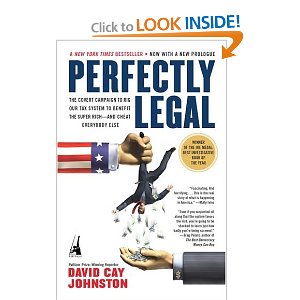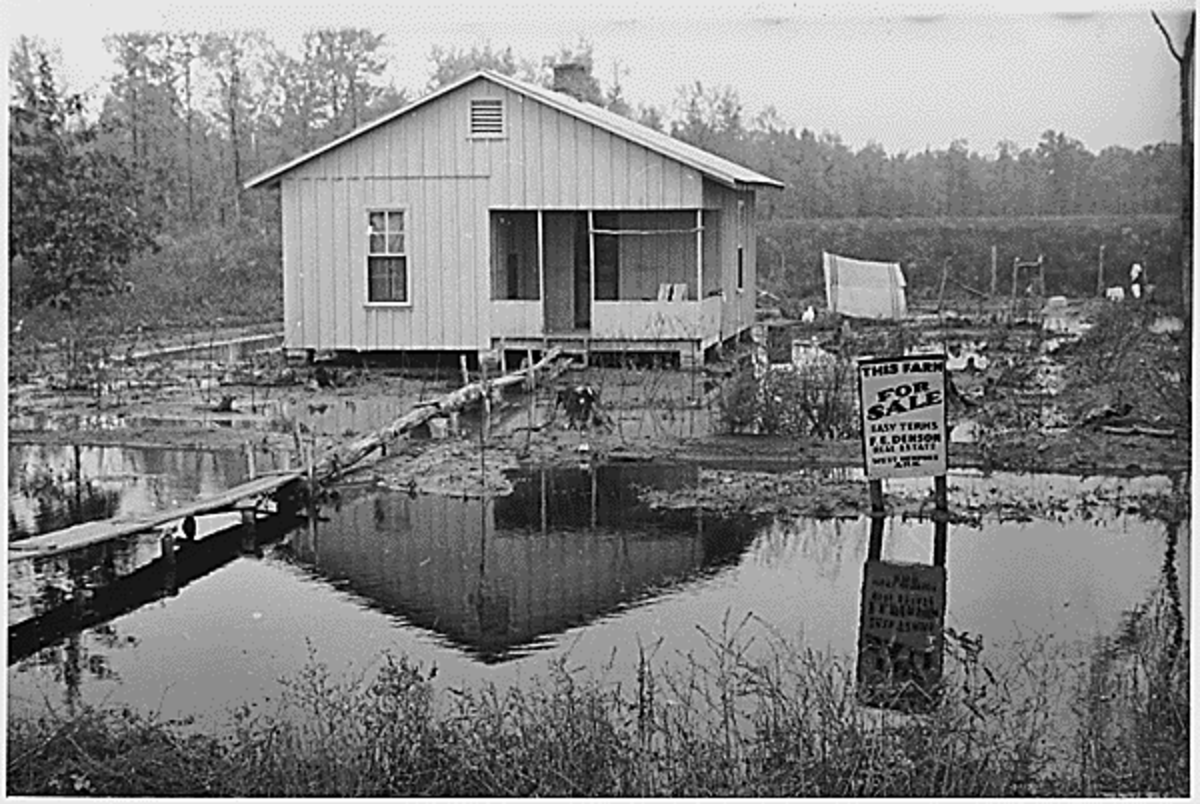Out of Thin Air: Even More Techniques in Upper Class Wheeling and Dealing (An Exposition)

Question: Why don't we have a universal healthcare system in the United States?
Answer: There's several different answers to this question that are discussed, and with which we are all familiar. We understand that business interests find the private insurance profitable. Why should they want to give it up?
On the other hand, perhaps we do not fully understand that "business interests" find the private insurance system desirable. We know that the specifically private insurance industry itself, obviously find the private insurance industry desirable. We're being redundant. Its a matter of existential survival for them.
But business, in general, find the private insurance industry (not just healthcare) in general, highly desirable for TAX EVASION purposes. Let's look at that now.
For this essay we are indebted, once again, to the investigative reporting of economic journalist, David Cay Johnston. The book is Perfectly Legal: The Covert Campaign To Rig Our Tax System To Benefit The Super Rich --- And Cheat Everybody Else (2003).
I guess the first place to start is the U.S. Tax Code section 501(c)(3), which allows individuals and companies to deduct gifts made to charities. This is one of 21 subsections which allow tax-free operations by groups ranging from scientific societies to the NFL. Subsection 15 authorizes tax-exempt insurance companies (Johnston, p.186).
That particular provision has been around since the Eisenhower years. Like all good things, the original purpose became distorted over time. The original idea was to help farmers and rural merchants who had trouble getting casualty insurance (for example, like fire insurance on their barns, and the like) either because they lived too far away from the city for big insurers to be interested, or some other condition peculiar to the community existed (ibid, pp.186-187).
Congress had originally intended for these insurance companies to be small. "In recent years," David Cay Johnston wrote, "companies qualified to operate tax-free only if the insurance premiums they collected were under $350,000 annually. If premiums passed that ceiling, but were under $1.2 million, then under another law taxes were due only on investment profits. Companies that collect more than $1.2 million in premiums are fully taxable on both investment income and earnings from premiums themselves" (ibid, p.187).
It seems to me, that this original legislation was just as important to the countryside as the Rural Electrification Act of 1936, which brought the rural areas of the United States into the twentieth century by bringing electricity to them. This was an important law that made up for a deficiency or the lack of interest of the "market" in providing this service.
Similarly, then, this subsection of the tax code, as it was originally intended by Congress, also did its part to bring the American countryside into the twentieth century, by extending insurance coverage for the major enterprises of the rural areas (small farming and small retail) for the first time (and long overdue) in the 1950s. The government had needed to step in and fill this gap, again, in the face of the indifference of the "market."
For thirty years, until the 1980s, these tax-exempt insurance companies, by law, had to be mutual insurance companies. By law, they could not be stock-held companies owned by investors (ibid).
The ability of these small insurance companies to operate on a tax-free or low-tax basis, combined with the fact that they, by law, could not be owned by Wall Street investors, essentially meant that these cozy institutions could operate like public utilities.
In 1986 far reaching tax "reform" was passed. One of the features of this new tax law was that the requirement that the small rural insurers be mutual companies, was removed. Investors could now own these tax-exempt and low-tax insurance companies (ibid).
Here's the "two" of the one-two punch!
"While Congress had placed a cap on how much these tax-exempt insurers could collect in premiums, no such limit applied to how much capital could be put into one of these companies to invest in the market" (ibid).
One day a man called Peter R. Kellogg, and others, of Spear, Leeds & Kellogg had a bright idea! Kellogg simply created a tax-exempt insurance company and stuffed it with capital far beyond any possible losses on claims. Kellogg put so much capital in the larger of his two tax-exempt insurer, IAT Reinsurance, that he earned $539 million of profits free of tax between 1996 and 2001. If Kellogg had paid federal corporate income taxes, he would have owed $188 million. His other company, SLK Reinsurance made $3.7 million in tax-free profits in 2000 and 2001, saving him $1.3 million (ibid, p.188).
As you can imagine, Kellogg did not make much of an effort to collect premiums. The law allowed each of his companies to collect $350,000 a year on a tax-free basis. But they typically collected less than $8,000 annually in premiums (ibid).
Notice that this subversion of the original intent of Congress is an attack on democracy by definition; but, also, this use of insurance companies as tax evasion vehicles actually creates a strong disincentive for insurance companies to do what they are supposed to be in business to do. If these insurance companies are allowed to collect $350,000 in premiums per year on a tax-free basis, and Kellogg's companies, for example, take in less than $8,000 annually: How many individuals, families, and small businesses, who are denied coverage, does that translate into? On the side we might wonder: Does this, in any way, contribute to the high rate of small business failure in the United States?
You'll recall, also, that the Obama healthcare legislation that has been passed has a feature in it that legally prohibits health insurance providers from denying coverage to people based on what they used to call a "pre-existing condition." Does the use of insurance companies as a vehicle for tax evasion, have anything to do with this previous tendency, again, whereby insurance companies are disincentivized to act like insurance companies in a crucial respect?
In 1999, IAT Reinsurance held $30 million in assets, earned $179 million in tax-free profits, and collected premiums of just $3,300. It paid out nothing in claims, just as had been the case for three prior years. IAT did incur some expenses: a $680,984 consulting fee to someone who was not identified; a $129,770 management fee; an $8,315 write-off on a company car; and some years IAT reported spending $1,000 a month on phone calls (ibid).
I think those figures speak for themselves.
This practice really got going in the late 1990s. By 2000 there were 14,000 of these companies operating. Car dealers and owners of appliance and electronics stores had more than 100 of these tax-exempt insurance companies. The insurance they provided was to extend the warranties on their products. The premiums were deposited into their OFFSHORE insurance companies. Having insurance companies that were nominally headquarted in the Caribbean, say, meant that travel there could be tax-deductible (Johnston, p.189).
The major accounting firms like KPMG and Price Waterhouse Coopers, as well as some small law firms promoted this scheme as a nice way to build retirement wealth. Even some big insurance companies found a way to get in on the act. The first thing they would do is to temporarily STOP WRITING NEW INSURANCE or to COLLECT ONLY MODEST AMOUNTS OF PREMIUMS, so that they could have the dividends, interest, and capital gains on their investment portfolios tax-free (ibid).
Again, what kind of social consequences might these work stoppages or work slowdowns of the insurance companies have?
In response to a question that has probably arisen for you, dear reader, know that: "For a stand-alone insurance company this would be a major problem since customers would move on to competitors, but if a company was part of a large group of insurance companies, then the premiums could simply be directed toward another company in the group." In 1997 then Governor George Pataki signed a law that allowed many corporations to operate tax-free in New York, by creating these subsidiary insurance companies. Remember, because they could simply send their collected premiums to their offshore "headquarters," they escaped New York City taxes, as well, for companies located there (Johnston, pp.189, 191).
The first thing the company does is create an insurance company it controls, known as a "captive" insurer, as the 1997 allows. Next, the company transfers to this captive insurer, corporate IOUs, which require the parent company to pay interest to the captive insurer. Under the law we're talking about (both state and city legislation), the company is allowed to deduct the interest paid to the "captive", while the interest is earned tax-free by the insurer itself. Other state and city laws require the insurance company to be excluded from the parent company's income tax return (ibid, pp.191-192).
The company pays enough interest, to the captive insurer, to wipe out any corporate profits. By this means, the 7.5 percent state corporate income tax and the 8.85 percent city tax can be eliminated altogether. The captive insurer has to pay taxes on its premiums. But that's just a fraction of 1 percent, $400,000 on $10 million in premiums (ibid, p.192).
For automobile dealers and appliance store owners, these tax-exempt insurance companies have another handy use. The tax returns for many of them show the premiums collected and the investment profit they earned tax-free, but nothing paid in premiums for many years. Remember, the insurance these car dealers and appliance stores offer are extensions for warranties on their products. It is likely, therefore, that the dealerships and appliance stores simply did the repair work themselves and wrote it off against the profits of the dealership or store. Up to the book when our source material (David Cay Johnston's book, Perfectly Legal) was published, in 2003, the IRS had never audited any of these tax-exempt insurance companies (ibid).
Thank you for reading.
References
Johnston, David Cay. Perfectly Legal: The Covert Campaign To Rig Our Tax System To Benefit The Super RIch --- And Cheat Everybody Else. Portfolio, 2003. pp.186-189, 191-192






